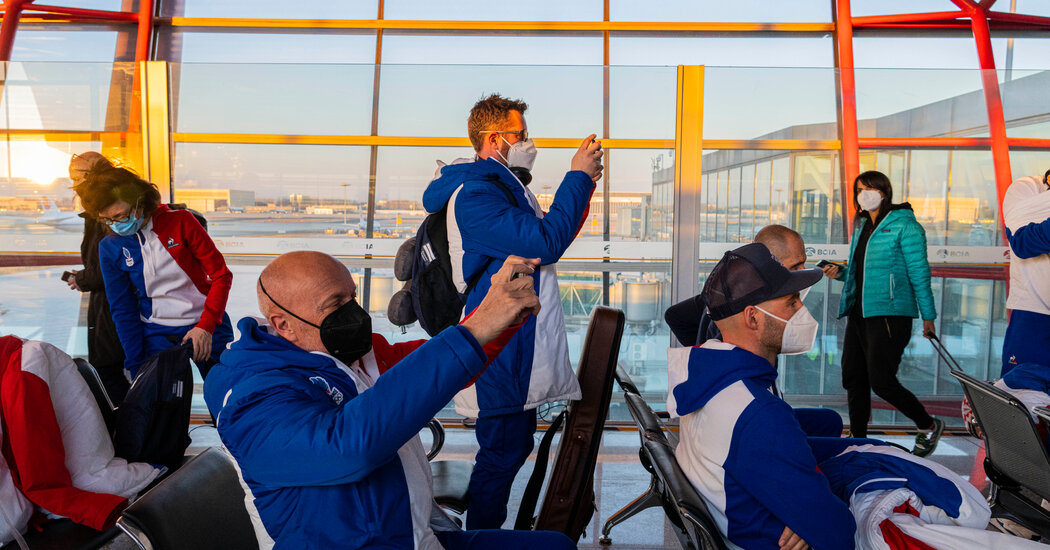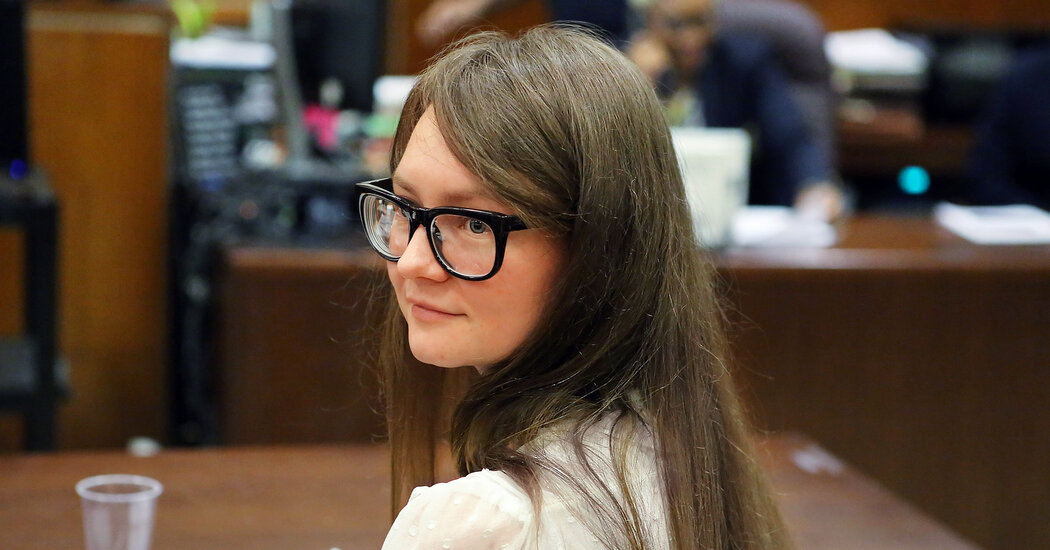
Chinese authorities have detained activists in their homes and sent others to jail. Censors have shut down the social media accounts of prominent critics. Officials have warned Olympians that protest could bring prosecution.
As athletes, journalists and other participants arrive for the Winter Olympics that begin on Friday, they are encountering some of the most intense security measures ever imposed at an international sporting event. Many of those are precautions against Covid-19, but others reflect the Chinese government’s growing intolerance of dissent and criticism.
Hu Jia, a prominent human rights activist, said the police in Beijing were confining him to his apartment. In January, he took to Twitter to criticize state security agents for questioning, harassing and detaining critics ahead of the Winter Olympics. Since then, the police have visited him four times in eight days.
“They said if I don’t stay silent, my rights to visit my mother may be affected,” he said, adding that the authorities were determined to quash any overt criticisms of the Games online.
With the authorities tightening their grip across Chinese society, one major question is whether any Olympic participants, including athletes, will be willing or able to speak out on issues the government deems objectionable. Activists and human rights groups have accused the party of decimating civil liberties in Hong Kong, oppressing ethnic minorities in Xinjiang and Tibet, and censoring Peng Shuai, a top tennis player who has mostly disappeared from public view after accusing a senior Chinese leader of sexual assault.
Teng Biao, a Chinese lawyer who was detained and disbarred during the Beijing Olympics in 2008, said that he believed that visiting athletes had “a responsibility to say something” about China’s growing repression.
Beijing has made it clear that such conduct could be met with consequences, even as officials have trumpeted their welcome for arriving athletes.
“Any behavior or speech that is against the Olympic spirit, especially against the Chinese laws and regulations, are also subject to certain punishment,” Yang Shu, the deputy director of Beijing’s Olympic organizing committee, warned during a recent call organized by the Chinese Embassy in Washington.
The crackdown adds to an already restrictive atmosphere. The Games will take place in three bubbles guarded by workers in hazmat gear and cut off from the surrounding cities — and from ordinary citizens. Those inside the bubbles must download a Chinese app that monitors their health and controls their movements between venues. Researchers say the software has encryption gaps that leave users’ personal information exposed.
The Olympic events will take place in front of a limited audience of screened spectators of China’s choosing. Organizers have installed fences to keep people out of venues like Beijing’s iconic National Stadium, known as the Bird’s Nest, where the opening ceremony will be held.
The heavy-handed controls are a “way to show the Chinese governance model works,” said Yaqiu Wang, a senior researcher at Human Rights Watch.
Under the current Chinese leader, Xi Jinping, Beijing has turned to harsh authoritarian tactics to quash dissent and build national power. To the party, the Olympics is an emblem of the Chinese political system’s success, and Beijing is unafraid to clamp down on those who seek to criticize it.
Olympic sponsors, advertisers and contractors have warned their employees not to raise sensitive topics, lest they jeopardize companies’ access to China’s market. Some national teams have advised athletes not to bring their own phones, but to use temporary ones, because of concerns about surveillance.
“What a world for us to be living in,” said Mandie McKeown, executive director of the International Tibet Network, a coalition of groups supporting Tibetan rights that helped to organize protests in several cities calling for a boycott of the Olympics.
She criticized the International Olympic Committee for not doing more to press China to ensure free speech and other values written in the Olympic Charters. “It’s just ludicrous,” she said.
The atmosphere contrasts with that of the 2008 Games, when there was hope for some easing of the Chinese Communist Party’s authoritarian proclivities. Despite the widespread censorship and detentions of activists, officials then had opened much of the country to reporters and even allotted space for three protest zones — though registering protests proved impossible.
Nothing like that has happened this time.
Now, Mr. Xi is showing that China has become powerful enough that it does not need to worry about what people think, according to Mr. Teng, the human rights lawyer, who went into exile and is now a visiting scholar at the University of Chicago.
“Compared to 2008, the Chinese government has become more and more powerful and aggressive. It seems they care less about international pressure,” he said in an interview, noting the brazenness of the warnings to foreign athletes.
“They really want to pre-emptively silence the athletes,” he said.
Across the country, the authorities have moved to muzzle those who might speak out while the spotlight is on China. Human rights groups have pointed to the detention or sentencing of five high-profile activists in recent weeks, including Xie Yang, a lawyer who was detained in January in the central city of Changsha for “inciting subversion” and “picking quarrels and provoking disturbances.”
Liang Xiaojun, a lawyer whose law license was revoked last month, said police officers had visited him in mid-January to warn him that China was entering its “Olympic security period.” Since then, he said, officials have been calling him regularly to check on his whereabouts.
Several activists and intellectuals said in interviews that the police have tried to silence them by shutting down their access to social media and the internet.
Zhang Yihe, a Chinese author and historian, said that Chinese censors on Jan. 8 banned her from using various functions on the popular social media app WeChat, in a move she believed was linked to the Olympics. Gao Yu, a veteran journalist and activist, said her WeChat account was also suspended in January. More recently, Ms. Gao said, security officials demanded she shut down her Twitter account.
The Chinese Communist Party “will control people’s speech for the Olympics,” she said, adding, “not even the slightest criticism is allowed.”
Chinese officials have already said that athletes will be given cell services that enable them to circumvent the government’s expansive censorship, which blocks sites like Facebook, Twitter, YouTube and Google. It is unclear if the authorities would seek to punish Olympic participants for online dissent, as they would Chinese citizens.
Mr. Teng said that China’s ability to sideline criticism during such a major event signaled how powerful China had grown since 2008.
“Beijing has the power — the economic and political power — to make the global business silent, even complicit, with human rights violations,” he said.




